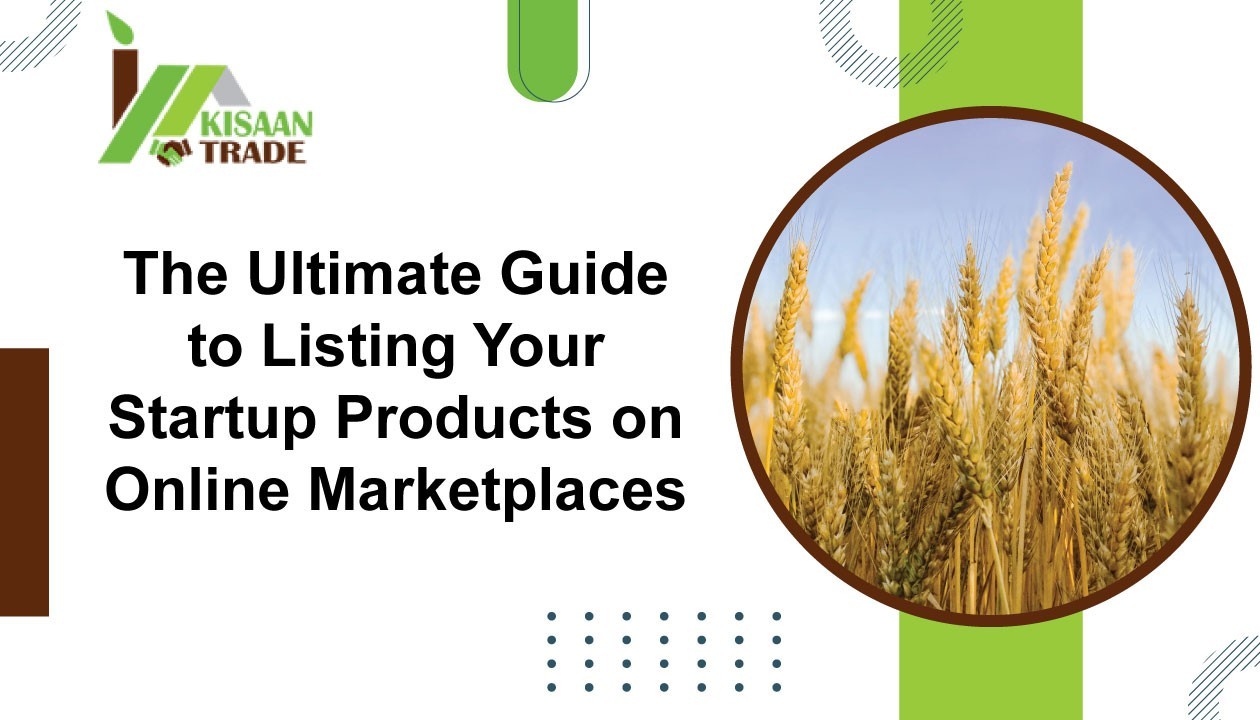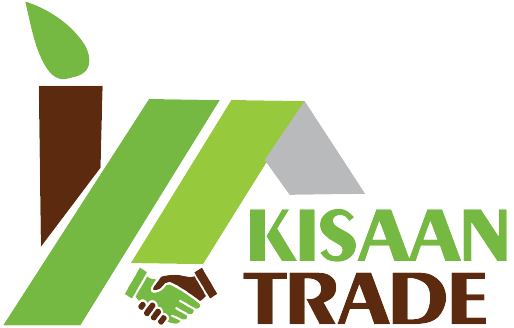The Ultimate Guide to Listing Your Startup Products on Online Marketplaces

Success in the e-commerce industry now involves more than just having money and a big warehouse. It's all about giving the end user a variety of options, and that depends entirely on the products you can offer. Retailers today are discovering that by cooperating, also known as collaborative commerce, they can give their customers more options and, ultimately, more value. Online markets are another excellent illustration of collaborative commerce.
Similar to its physical counterpart, the mall or department store, an online marketplace is made up of a number of store owners who band together to sell their goods using a common infrastructure. The only distinction is that online marketplaces operate through a digital storefront, whereas malls are physically housed in structures. The owners of marketplaces aren't accountable for keeping inventory on hand or completing orders, just like mall owners aren't. The sellers themselves oversee that. Owners of marketplaces typically charge a percentage of any sales made there.
What is an online marketplace?
An online marketplace is the most common form of multichannel ecommerce platform where third parties provide product and service information. Three parties are typically involved in an online marketplace: a marketplace owner (or operator), vendors (or marketplace sellers), and buyers (or customers and consumers). In a typical marketplace scenario, platform owners draw vendors and customers for trading on the site, customers shop and purchase goods, the operator processes payments, and retailers or wholesalers complete and deliver orders.
The most well-known online retail marketplaces include Taobao, eBay, and Amazon. The rise of Alibaba Group and its subsequent adjacent businesses in logistics, payment systems, and mobile commerce set a unique precedent for the industry and guided the online business in a completely new direction, despite the fact that Amazon had long been a trailblazer and a model for all other marketplaces.
The Advantages of Online Marketplace Selling
Selling on online marketplaces has numerous advantages that significantly outweigh the costs involved, such as transaction, internet marketing, and subscription fees.
1) First off, online marketplaces let you sell your own goods without having to set up an online store and pay for hosting, maintenance, and other related expenses.
2) Online marketplaces give you an additional channel to market and sell your products, with significantly lower marketing costs, even if you already run such an ecommerce site.
3) Online selling at a multi vendor store presents chances to establish new business relationships with additional vendors, suppliers, fulfillment facilities, or customers.
4) Finally, the ability to conduct side-by-side online business with other vendors enables you to assess your goods' competitiveness, keep an eye on others' pricing practices, and modify your pricing (and/or marketing) strategies as necessary.
5) Online marketplaces create new revenue streams and opportunities, especially when it comes to reaching new markets, regions, and other areas.
How to Pick the Right Ecommerce Marketplace for You?
1) Do Some Competition Research
Look up the categories of goods that your rivals sell, the language they employ to describe them, and, most importantly, the B2B marketplace platforms they employ for promotion and sales.
2) Study Your Target Market
After you've narrowed down the types of marketplaces your rivals use, find out where your customers are most likely to make purchases. Examine customer reviews, seek out specific customers for interviews, and browse social media websites and forums for discussions pertaining to the market.
3) Select a Number of Platforms
After conducting research, select a small number of platforms and look up the terms and conditions for selling on those marketplaces. Choose the ideal circumstances, then get in touch with the marketplace operators to learn more about their onboarding and verification procedures.
4) Make Your Selection Even More Specific
Select one market to experiment with, then observe the results. You might find that selling at just one market is sufficient to generate a respectable income. Once you find your rhythm, you might start selling on several marketplaces at once by incorporating additional platforms into the mix.
Top 5 Strategies for Successful Marketplace Selling
1) It may seem obvious, but providing excellent customer service is one of the best (and cheapest) things you can do. No matter what you happen to be selling or where that may be, customers must come first. Make sure your customers receive their orders in the best condition possible and are given the necessary product information. Respond to negative feedback and exhort clients to contact you whenever help is needed.
2) The next crucial step is to optimise your product content and create product listings that not only give customers all the information they need about your goods but also encourage them to choose yours over those of your rivals. Spend some time selecting the appropriate keywords, coming up with intriguing product descriptions, and uploading gorgeous images that emphasise the benefits of your product.
3) Invest in online advertising. Check to see if the marketplace of your choice offers extra marketing services for a fee, look for bloggers to collaborate with on product promotion, and use social media to advertise.
4) It makes sense to keep an eye out for competitors' pricing strategies and modify your prices in accordance with them because the majority of customers typically shop around for lower prices (which is typical online shopping behaviour). You might want to think about utilising an automated algorithmic repricer to do so successfully. Inquire about the marketplace operator's recommendations for AI and ML engines to use.
5) Optimise and diversify your shipping strategy. Use the marketplace's fulfillment programmes, collaborate with third-party fulfillment service providers and logistics firms, or combine the two approaches for the best outcomes.
The Impact of COVID-19 on the Market
Marketplaces and e-commerce in general have grown as a result of COVID-19 and the ensuing quarantine. Thus, in 2020, marketplace ecommerce sales will account for 47% of all ecommerce sales worldwide, or almost two trillion dollars. Businesses that have been running marketplaces for more than a year should see at least a 10% increase in revenue by 2023, predicts Gartner. Given the boost provided by the pandemic, we are confident that the number of marketplaces will increase even more over the ensuing years. So, if there is ever a good time or place to start a business, it is definitely now and online.
Why is a Marketplace More Practical than a Standard Online Store?
Unlimited potential for growth: Owners of marketplaces can simply onboard sellers to expand their selection of products. They don't have to worry about sourcing inventory or paying for storage. Owners of marketplaces are not constrained by the limitations of physical infrastructure and resource requirements because they do not hold physical inventory. This results in an infinite potential for scaling.
Possibility of drawing a sizable customer base: Because of their potential to provide a wide range of goods, marketplaces have the potential to draw a sizable customer base.
Customers prefer to purchase goods from specialized marketplaces because they provide more options: For instance, a customer may be unable to find a particular brand of cordless drill at their neighbourhood hardware store. However, a sizable online marketplace like Home Depot, which caters to the home improvement market and also combines products from various brands, is very likely to have the item they require in stock.
Easy Accessibility: More buyers and return visitors are drawn to an online marketplace because they can quickly and conveniently meet all or the majority of their needs there.
Streamlined costs: The marketplace model has a low operating cost because it does not require warehousing or logistics overhead. With very little staff and infrastructure, marketplace operators can set up an online marketplace platform. The model becomes more environmentally friendly and sustainable as a result.
Higher profitability: Online marketplaces are much more effective at making money because of their low overhead.
Brick and Mortar structures are not essential anymore: Physical infrastructure, personnel, and other overhead costs are very expensive for brick-and-mortar businesses, like department stores like Macy's.
Because they don't require hiring staff, setting up warehouses, or keeping inventory, online marketplaces are more profitable. The automation of many back-office tasks can make them unnecessary. Owners of online marketplaces can enjoy much higher profits because these costs are no longer eating into their margins and because physical infrastructure is no longer limiting their ability to sell.
Why list your goods on Kisaan Trade?
Reach a Wider Audience: Enlarge your audience. A B2B online marketplace called Kisaan Trade links Indian farmers, traders, and buyers. By listing your products on the platform, you can reach a wider audience and potentially attract new customers.
Increase Sales: By reaching a wider audience, you can increase the likelihood of making sales. Kisaan Trade also offers real-time pricing data, which can assist you in setting competitive prices for your products.
Logistic Support: For the transportation of agricultural commodities, Kisaan Trade provides logistics support, which can help to ensure timely delivery and lower the risk of spoilage.
Ensure Quality Assurance: A quality assurance guarantee is provided by Kisaan Trade, which can help foster trust between buyers and sellers and lower the likelihood of disagreements.
Facilitate Payment Transactions: Kisaan Trade helps buyers and sellers complete payment transactions, which can cut down on payment delays and ensure that farmers and traders are paid on time.
Support Farmers: Kisaan Trade aims to support farmers by giving them access to knowledge about the best methods for growing crops, such as soil testing, seed selection, and pest control. A dedicated team of experts working on the platform offers technical assistance and guidance to farmers.








